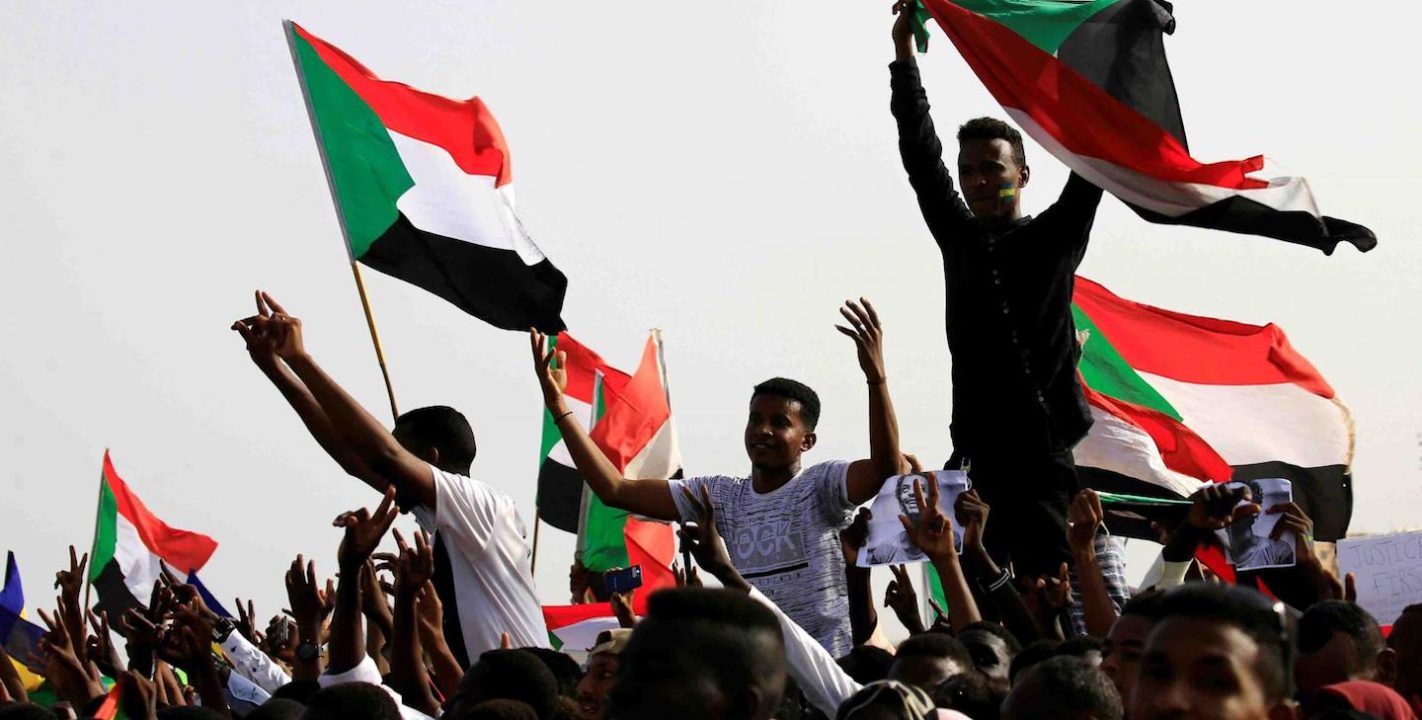

Atrocity Alert is a weekly publication by the Global Centre for the Responsibility to Protect highlighting situations where populations are at risk of, or are enduring, mass atrocity crimes.
Mass protests after paramilitaries kill 4 school children in Sudan
On Monday, 29 July, five people, including four high school students between 15 and 17-years-old, were shot dead at a student-led protest in El-Obeid, North Kordofan. The paramilitary Rapid Support Forces (RSF) allegedly opened fire on the protesters, many of whom were wearing school uniforms. The students were participating in demonstrations against high prices and shortages of water, electricity and public transport in El-Obeid. The UN Children’s Fund’s representative in Sudan, Abdullah Fadil, strongly condemned the killings, saying that “no child should be buried in their school uniform.”
The deaths of the students caused a resurgence of mass protests as tens of thousands of people took to the streets in Khartoum and other major cities and towns across Sudan. The security forces have reportedly fired tear gas and live ammunition in an attempt to disperse demonstrations. The Transitional Military Council (TMC), which has ruled Sudan since seizing power in a coup in April, announced on 30 July that all schools have been shut down until further notice. Negotiations between the TMC and the main opposition group, the Forces for Declaration and Freedom of Change (FFC) were also postponed.
Monday’s killings mark one of the deadliest incidents since 3 June, when the RSF attacked a peaceful mass sit-in outside Army Headquarters in Khartoum. During that deadly crackdown the RSF killed more than 120 unarmed civilians. The RSF operates under the command of the deputy head of the TMC, General Mohamed Hamdan Dagalo, or “Hemedti,” and has previously been implicated in atrocities in the Darfur region.
Prosecutors investigating the 3 June “Khartoum massacre” announced on 27 July that no leading general of the TMC had ordered the deadly dispersal of the sit-in. According to Prosecutor Fathel-Rahman Said, the attack was an independent initiative of the RSF and only 17 people were actually killed at the sit-in. The FFC rejected the findings, noting that they “lacked necessary integrity standards” and said that the report’s objective was to “blur and bury the facts.”
Mediated by the African Union and Ethiopia, the TMC and the FFC signed a power-sharing deal on 17 July, approving a joint civilian-military ruling council to govern Sudan for the next 39 months, prior to elections. All states should suspend diplomatic relations with Sudan until the TMC and the FFC have reached a final agreement regarding the terms of the power-sharing deal and an agreed transfer of power to civilian rule. Given the absence of independent and impartial investigations, at its upcoming session in September the UN Human Rights Council should establish an investigative mechanism to collect evidence of serious human rights violations committed since the outbreak of mass demonstrations on 19 December last year and identify those responsible for extrajudicial killings.
Boko Haram continues deadly attacks on remote Nigerian villages
On 27 July at least 65 people were killed during an attack by the armed extremist group Boko Haram on people returning from a funeral in the Nganzai district of Borno State. The suspected revenge attack came after local villagers and civilian defense forces ambushed a number of Boko Haram fighters two weeks earlier, killing eleven of them. Saturday’s attack is the deadliest perpetrated by Boko Haram so far this year, coming just one month after 30 people were killed when three suicide bombers attacked a busy market outside Konduga, Borno State.
Last Friday, 26 July, marked the tenth anniversary of the Boko Haram insurgency, which started after the killing of the group’s founder, Mohammed Yusuf, in police custody. His death sparked a campaign of terror in northern Nigeria and across the Lake Chad Basin that has claimed more than 30,000 lives and displaced millions in Nigeria, Niger, Chad and Cameroon.
Despite repeated claims by the Nigerian government that it has defeated Boko Haram, the armed extremist group and the so-called Islamic State in West Africa (ISWA) have intensified their attacks in north-east Nigeria. According to the UN Office for the Coordination of Humanitarian Affairs, there are currently 1.4 million internally displaced persons (IDPs) in Borno State and an additional 400,000 IDPs in Adamawa and Yobe states as a result of insecurity caused by Boko Haram.
Political tensions have also escalated between the government and the Islamic Movement in Nigeria (IMN), a Shia political group that opposes Nigeria’s federal state. Following deadly clashes between the security forces and IMN protesters in Abuja that resulted in eight people being killed, on 28 July the government banned the IMN and officially listed it as a terrorist organization. The Nigerian government accused the IMN of “employing violence and arson, driving fear and undermining the rights of others and constituted authority.” Nigerian security forces previously shot dead at least 30 IMN supporters during a religious procession in October 2018 and killed 340 following a violent confrontation in Kaduna State during 2015.
In addition to enhancing local security in areas vulnerable to attack by Boko Haram or ISWA, the Nigerian government should continue to undermine the appeal of violent extremist groups through socio-economic initiatives and political reforms that tackle corruption, poor governance and land rights. Members of the security forces must also be held accountable for the unlawful killing of civilian protesters.
5 years since the Yazidi genocide
This Saturday, 3 August, will mark five years since the armed extremist group the Islamic State of Iraq and the Levant (ISIL), launched an armed campaign in the Sinjar region of northern Iraq, seeking to destroy the minority Yazidi population. In the weeks following the initial attack on 3 August 2014, ISIL executed over 5,000 Yazidi men and boys and subjected over 7,000 women and girls to prolonged abuse, sexual violence and enslavement. Pre-pubescent Yazidi boys were separated from their families, forced to convert to Islam, and recruited as child soldiers.
According to the June 2016 report of the UN Commission of Inquiry (CoI) on Syria, ISIL “has committed the crime of genocide as well as multiple crimes against humanity and war crimes against the Yazidis.” During March 2019 the Iraqi government, in cooperation with the UN Investigative Team for Accountability for Da’esh/ISIL (UNITAD), began exhuming mass graves in Kocho, where ISIL captured approximately 1,200 Yazidis, killing or enslaving the villagers.
Despite the military defeat of ISIL, the group continues to pose an ongoing threat to civilians, preventing the return of displaced Yazidis and other vulnerable minority populations to their homes. During June ISIL claimed responsibility for burning nearly 134,000 acres of land in Iraq, including farms upon which Yazidis depend for survival. Yazidi genocide survivor and Nobel Peace Prize laureate Nadia Murad has asserted that: “The Yazidi community wants to return home. They want to start over – to rebuild their homes and farms and to create new lives with their families. … If we abandon the Yazidi community, we are helping ISIS accomplish its goal of eradicating the Yazidis from their homeland.”
Five years since the genocide began, no ISIL member has been held legally accountable for mass atrocity crimes perpetrated against Yazidis, Christians and other minority populations in Iraq. Iraqi courts have prosecuted thousands of ISIL members, including foreign fighters, but have relied exclusively on counter-terrorism laws, hanging the condemned after rudimentary trials. The Iraqi government should work with UNITAD and survivors’ organizations to establish a credible and transparent legal process to hold ISIL members accountable in front of the survivors of their atrocities and the eyes of the world.
Read Next

Related Publications

Atrocity Alert No. 403: Israel and the Occupied Palestinian Territory, Sudan and the UN Human Rights Council

Atrocity Alert No. 402: Ukraine, Myanmar (Burma) and Nigeria
